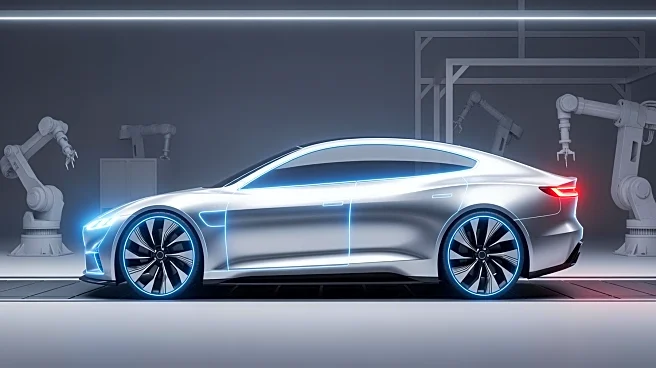Rapid Read • 8 min read
President Donald Trump has introduced a new tax break aimed at encouraging consumers to purchase new cars assembled in the United States. The 'One Big Beautiful Bill Act' allows car buyers to deduct interest paid on new car loans until 2028, provided the vehicle's final assembly occurs domestically. This tax break is part of a broader initiative to reward automakers for manufacturing in the U.S. and incentivize consumers to buy American-made vehicles. However, the deduction is capped at $10,000 annually and phases out for individuals with a modified adjusted gross income exceeding $100,000, or $200,000 for married couples filing jointly. The tax break does not apply to used cars or loans taken out before 2025.
AD
The tax break is designed to bolster the U.S. automotive industry by promoting domestic manufacturing and sales. While it offers potential savings for new car buyers, experts suggest it may not significantly alter consumer behavior due to the substantial price difference between new and used cars. The average new car costs significantly more than a used one, and the tax deduction may not offset this gap sufficiently to change purchasing decisions. Nonetheless, the initiative could benefit consumers with lower credit scores who face higher interest rates, providing them with meaningful savings.
The tax break is set to expire in 2029, and its impact on the automotive market will be closely monitored. Dealers are expected to highlight the benefits of buying domestically assembled vehicles, potentially influencing consumer choices. As the policy unfolds, stakeholders will assess its effectiveness in promoting U.S. manufacturing and its influence on the car market dynamics.
The tax break raises questions about the long-term sustainability of incentivizing domestic manufacturing through tax policy. It also highlights the complexities of defining 'American-made' vehicles, as many 'import' brands have assembly plants in the U.S., and some 'American' brands manufacture abroad. This could lead to discussions on the broader implications of trade and manufacturing policies.
AD
More Stories You Might Enjoy










